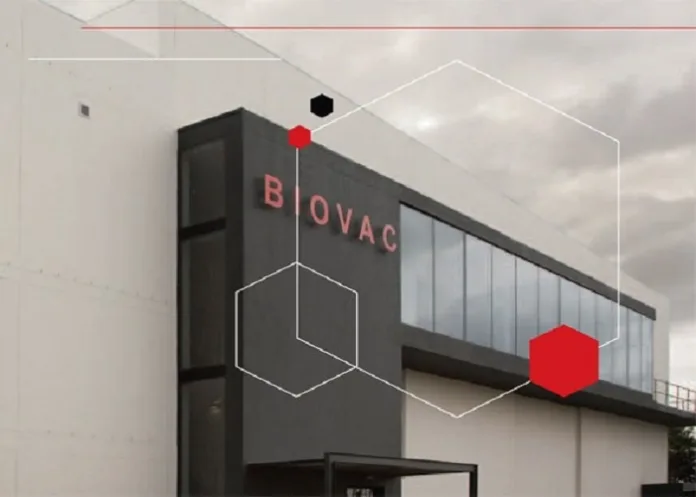While Ministers are punting South Africa as a biopharmaceutical investment destination and government has bemoaned the lack of vaccine manufacturing capacity in the country, the Health Department has turned its back on a local state-backed manufacturer in favour of imports, writes MedicalBrief.
SA’s state-backed vaccine manufacturer Biovac is reeling from the department's decision to switch to a cheaper supplier of shots for deadly paediatric pneumococcal diseases.
“We are stunned,” Biovac CEO Morena Makhoana told Business Day.
The move – which will undoubtedly save money for the department – contrasts with government policies to support domestic vaccine manufacturing capacity and improve the security of supply for both SA and the continent.
The region’s lack of vaccine manufacturing capacity was highlighted during the pandemic after it was shoved to the back of the queue when Covid-19 shots became available and governments that had manufacturing capacity prioritised their own populations.
Biovac, a public-private partnership established 20 years ago to revive SA’s human vaccine manufacturing capabilities, entered into a partnership with Pfizer in 2015 to make the global pharmaceutical firm’s potentially life-saving Prevenar-13 vaccine at its Pinelands facility, in the expectation that it would supply the jabs to the SA Government.
Biovac won the contract in 2019 and was expected to continue to supply the government for its next three-year tender from January 2024.
But the latest tender, published last week, gives the supply contract for pneumococcal vaccines to Cipla, which has no local manufacturing capacity and is expected to have to import the shots from the Serum Institute in India.
The tender documents show Cipla was awarded 99 out of a possible 100 points, nine of which were for its BEE status and 90 for price, and has been contracted as the sole supplier of 12.6m doses of a 10-valent pneumococcal vaccine at R97.06 per dose.
Biovac’s BEE status is 10, which means its bid price must have been higher than Cipla’s.
However, it provides a 13-valent vaccine, which protects children against 13 different strains of pneumococcal disease. In the 2019 tender, the department paid Biovac R288.32 per dose for Prevenar-13.
Shocked
“My number one headache now is how am I going to strike any further deals? If you snub a company like Pfizer, which other investor will see this as a worthwhile (enterprise) to invest in?” said Biovac’s Makhoana. Pfizer has invested R855m in the partnership with Biovac.
While the Health Department might be saving money on its next tender for pneumococcal vaccines, it comes at a significant cost to jobs and the economy, Makhoana said.
He said that in previous tenders, Biovac was given an opportunity to negotiate on price, but this time around there was “no discussion at all”.
Pfizer Sub-Saharan Africa CEO Kevin Francis said the decision came as a “huge surprise”, given that several years ago the department had asked Biovac to invest in the production of Prevenar-13 and that the both the Departments of Science & Innovation and that of Trade, Industry & Competition were promoting SA as an investment destination for biopharmaceuticals.
“There is no alignment between government departments,” he said.
He cautioned that the decision threatens Biovac’s expansion plans, and raises tough questions about Pfizer’s future investments in SA.
“It puts us in a precarious position. How do we consider future investments going forward in SA?” he asked.
The department’s decision to move from a 13-valent shot to a 10-valent jab is a retrogressive move with important public health implications, as the new jabs will offer infants less protection, he said.
Trade association Pharmaceuticals Made in SA (Pharmisa) said procurement decisions by the government need to strike the balance between price and economic value.
“Sensitive national pharmaceutical procurement decisions require the inputs of both the line departments and those of the economic cluster that procurement decisions constitute best value for money rather than what at face value appears to be the cheapest price” said the association’s chairperson, Stavros Nicolaou, who is also Aspen Pharmacare’s head of strategic trade.
Aspen, as the country’s biggest generic drugmaker, is urging the continent to pool procurement for pharmaceuticals, saying this would enable countries participating in the African Continental Free Trade Area (AfCFTA) to improve competitiveness, and provide greater certainty of demand for drugmakers.
Nicolaou said this would also improve security of supply and widen access to lifesaving vaccines and medicines.
Africa imports 99% of its vaccines, and countries with domestic production capacity prioritised their own populations before selling Covid-19 jabs to the continent.
AfCFTA aims to progressively eliminate tariffs between participating countries, to grow intra-African trade, and a pooled procurement mechanism could be used for high-volume products such as childhood vaccines and HIV drugs, said Nicolaou.
“Africa has 68% of the world’s HIV (burden), yet imports in excess of 80% of the ARVs needed for the continent,” he said on the sidelines of the three-day AfCFTA business forum meeting in Cape Town this week.
The Global Access to Vaccines Initiative (Gavi), which uses donor funding to purchase childhood vaccines on behalf of low-income countries, provided immediate relief to countries unable to fully fund their own immunisation programmes, but did not help to develop the technical know-how and skills required for domestic manufacturing, he added.
Africa’s challenges in obtaining Covid-19 shots at the height of the pandemic prompted the AU to set up the African Vaccine Acquisition Task Team (Avatt). While the demand for the vaccines did not meet Avatt’s expectations, negotiating large volumes had enabled Avatt to secure lower prices than individual governments could have done on their own, he said.
See more from MedicalBrief archives:
Pfizer invests R255m to strengthen South Africa’s health system through Biovac partnership
Generics green-light for new HIV drug, but Africa peeved
SA-born head of US biotech to partner with Biovac on COVID vaccine
€15m pledge to increase Biovac vaccine production

